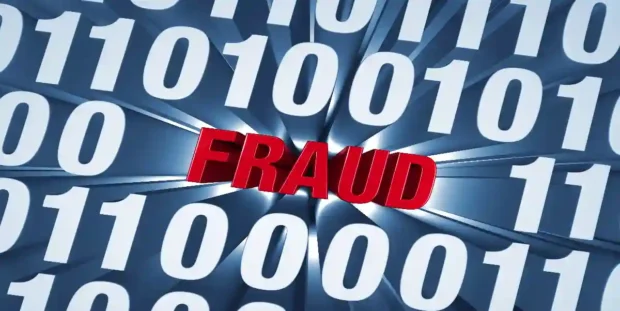Introduction to the Biohaven Class Action Lawsuit
The Biohaven class action lawsuit seeks to represent purchasers or acquirers of Biohaven Ltd. (NYSE: BHVN) securities between March 24, 2023 and May 14, 2025, inclusive (the “Class Period”). Captioned Taylor v. Biohaven Ltd., No. 25-cv-01120 (D. Conn.), the Biohaven class action lawsuit charges Biohaven and certain of Biohaven’s top executives with violations of the Securities Exchange Act of 1934.
If you suffered substantial losses and wish to serve as lead plaintiff of the Biohaven class action lawsuit, or just have general questions about you rights as a shareholder, please contact attorney Timothy L. Miles of the Law Offices of Timothy L. Miles, at no cost, by calling 855/846-6529 or via e-mail at tmiles@timmileslaw.com.
Lead plaintiff motions for the Biohaven class action lawsuit must be filed with the court no later than September 12, 2025.
Understanding Securities Fraud Class Action Lawsuits
Securities fraud class action lawsuits represent a significant legal mechanism for investors who have suffered financial losses due to corporate malfeasance. These lawsuits, such as the Biohaven class action lawsuit, typically arise when a company or its executives engage in deceptive practices that mislead investors about the company’s financial health or prospect.
The goal of such litigation is to hold the perpetrators accountable and secure compensation for the affected investors. Securities fraud encompasses a range of activities, including insider trading, false financial statements, and misleading disclosures, all of which can severely impact market integrity and investor confidence.
In a class action context, a group of investors collectively brings the lawsuit against the defendant, which could be a corporation or its executives. This collective approach is particularly powerful in the securities realm because it allows individual investors, who might not have the resources to pursue litigation on their own, to band together and seek justice.
The class action mechanism ensures that the legal process is efficient and that the interests of all affected investors are represented.
The complexity of securities fraud class action lawsuits requires plaintiffs to navigate a labyrinth of legal standards and procedural hurdles. One of the most significant challenges is surviving a motion to dismiss, a legal maneuver by the defendants to have the case thrown out before it reaches trial.
Understanding the nuances of the Biohaven class action lawsuit is crucial for any stakeholder involved, as it sets the stage for the strategic decisions that will follow. In the case of the Biohaven class action lawsuit, these elements come into sharp focus, highlighting the importance of a well-crafted legal strategy.

The Mechanism of Class Actions
Class actions are designed to address situations where individual claims may be too small to warrant separate lawsuits. By pooling resources, investors can present a united front against alleged corporate misconduct. This legal structure is particularly beneficial in cases of securities fraud, where misleading statements about a company’s financial status can lead to significant investor losses.
Key Players in Class Action Lawsuits
In a typical securities class action, several key participants are involved:
- Lead Plaintiffs: These individuals or entities represent the interests of the larger group of investors.
- Defendants: Usually comprising the corporation and its executives, these parties are accused of wrongdoing.
- Legal Counsel: Attorneys representing both plaintiffs and defendants play a crucial role in navigating the complexities of the case.
- Judicial Authorities: Judges oversee the proceedings, making critical decisions regarding motions and class certification.
Understanding the roles of these participants is essential for grasping the dynamics of securities class actions.
The Rise of the Biohaven Class Action Lawsuit
The Biohaven class action lawsuit has garnered significant attention , particularly as investors react to perceived misrepresentations by the pharmaceutical company. As the landscape of securities litigation evolves, this case exemplifies the growing trend of class actions in the healthcare sector.
Background of the Biohaven Case
Biohaven Pharmaceutical Holding Company, known for its innovative treatments, faced scrutiny over its financial disclosures and marketing practices. Allegations surfaced that the company may have provided misleading information regarding the efficacy and safety of its products, leading to substantial investor losses. This situation prompted affected shareholders to band together, initiating a class action lawsuit against the company.
Implications for Investors
The Biohaven lawsuit highlights the importance of transparency in the pharmaceutical industry. Investors are increasingly aware of the risks associated with investing in companies that may not fully disclose critical information. As a result, the outcome of this case could set a precedent for future securities class actions within the healthcare sector.
Trends in Securities Class Actions for 2025
As we look ahead to 2025, several emerging trends are shaping the landscape of securities class action lawsuits. Understanding these trends is crucial for investors, legal practitioners, and corporate leaders alike.
Increased Focus on Technology and AI
The integration of technology and artificial intelligence (AI) into business operations has introduced new complexities into securities litigation. Companies are now facing heightened scrutiny regarding their AI practices, particularly concerning transparency and ethical considerations. As AI continues to evolve, so too will the legal challenges associated with its use.
Cybersecurity Concerns
With the rise of cyberattacks, investors are becoming increasingly vigilant about how companies manage data breaches. Securities class actions related to cybersecurity issues are on the rise, as shareholders demand accountability for inadequate disclosures regarding potential risks. Companies must prioritize robust cybersecurity measures and transparent communication to mitigate legal risks.

Regulatory Changes
Ongoing regulatory developments are expected to impact the filing and resolution of securities class actions. Investors should stay informed about potential reforms to securities laws that may alter their rights and options for recourse. Understanding the regulatory landscape is essential for navigating the complexities of securities litigation.
The Role of Judicial Discretion
Judicial discretion plays a pivotal role in the outcomes of securities class action lawsuits. Judges have the authority to interpret the law and make critical decisions regarding motions to dismiss and class certification.
Motions to Dismiss
Motions to dismiss are often influenced by a judge’s interpretation of the law and the specifics of the case. This variability can lead to inconsistent outcomes across different jurisdictions. Companies must be aware of the judicial landscape in which they operate to effectively navigate potential legal challenges.
Class Certification Challenges
Class certification is a crucial step in securities class actions, allowing plaintiffs to proceed as a group. However, challenging class certification remains a formidable task for defendants. In recent years, a significant percentage of resolved cases have involved motions for class certification, with a high success rate for plaintiffs.
The Importance of Risk Factor Disclosures
Risk factor disclosures are intended to inform investors about potential threats to a company’s performance. However, the concept of “fraud by hindsight” has emerged as a contentious issue in securities litigation.
Balancing Transparency and Clarity
Companies must navigate the delicate balance between providing sufficient risk disclosures and overwhelming investors with excessive information. Clear and concise disclosures are essential to ensure that investors are adequately informed without being misled.
Legal Precedents
Recent legal cases have underscored the complexities surrounding risk disclosures. The reluctance of courts to establish clear guidelines has left companies in a gray area, making it imperative for them to adopt best practices in risk communication.
Global Perspectives on Securities Class Actions
Securities class actions are not confined to the United States; they are a global phenomenon. Various countries are witnessing an increase in securities class actions, driven by the adoption of collective redress mechanisms and regulatory changes.
International Trends
Countries such as Canada, Australia, and those within the European Union are experiencing a rise in securities class actions. Investors in these regions are gaining new avenues for recourse, reflecting a growing awareness of corporate accountability.
Cross-Border Challenges
Investors must be aware of the complexities associated with cross-border securities class actions. Jurisdictional issues, varying legal standards, and differing regulatory environments can complicate the pursuit of claims on an international scale.

The Future of Securities Class Actions
Looking ahead, the landscape of securities class action lawsuits is likely to continue evolving. Several factors will shape the future of these legal actions.
Regulatory Developments
Ongoing regulatory changes, including potential reforms to securities laws, will impact how class actions are filed and resolved. Investors should remain vigilant and informed about changes that may affect their rights and options for recourse.
Technological Integration
The integration of technology in the legal process, including the use of artificial intelligence and data analytics, is expected to enhance the efficiency of securities class actions. These advancements may streamline case management and improve outcomes for investors.
Conclusion
The Biohaven class action lawsuit serves as a critical case study in the evolving landscape of securities class actions. As investors navigate the complexities of securities litigation, understanding emerging trends, regulatory changes, and the importance of transparency is essential. By staying informed and proactive, stakeholders can better protect their interests in an ever-changing financial environment.
If you believe you have been adversely affected by the actions of Biohaven or any other corporation, it is crucial to seek legal counsel. Understanding your rights and options for recourse can empower you to take action and advocate for your interests effectively.
Frequently Asked Questions About the Biohaven Lawsuit
What initiated the Biohaven lawsuit?
The lawsuit was initiated by investors alleging that Biohaven provided misleading information regarding its financial health and operations, resulting in financial losses.
How can I join the Biohaven lawsuit?
If you purchased shares during the class period and suffered a loss, then you are automatically a member of the class and do not need to do anything at this point unless you are considering moving for lead plaintiff.
What are the potential benefits of a Biohaven lawsuit?
Class action lawsuits allow individual investors to collectively seek justice and compensation, which might be challenging to pursue individually. They also promote corporate accountability.
How long will the Biohaven lawsuit take to resolve?
The duration of class action lawsuits can vary significantly, depending on the complexity of the case, legal strategies, and whether settlements are reached. It could take several months to years.
Contact Timothy L. Miles Today About an Biohaven Class Action Lawsuit
If you suffered substantial losses and wish to serve as lead plaintiff of the Biohaven class action lawsuit, or just have general questions about you rights as a shareholder, please contact attorney Timothy L. Miles of the Law Offices of Timothy L. Miles, at no cost, by calling 855/846-6529 or via e-mail at tmiles@timmileslaw.com.(24/7/365).
Timothy L. Miles, Esq.
Law Offices of Timothy L. Miles
Tapestry at Brentwood Town Center
300 Centerview Dr. #247
Mailbox #1091
Brentwood,TN 37027
Phone: (855) Tim-MLaw (855-846-6529)
Email: tmiles@timmileslaw.com
Website: www.classactionlawyertn.com
Facebook Linkedin Pinterest youtube
Investor Hub: Additional Resouces






